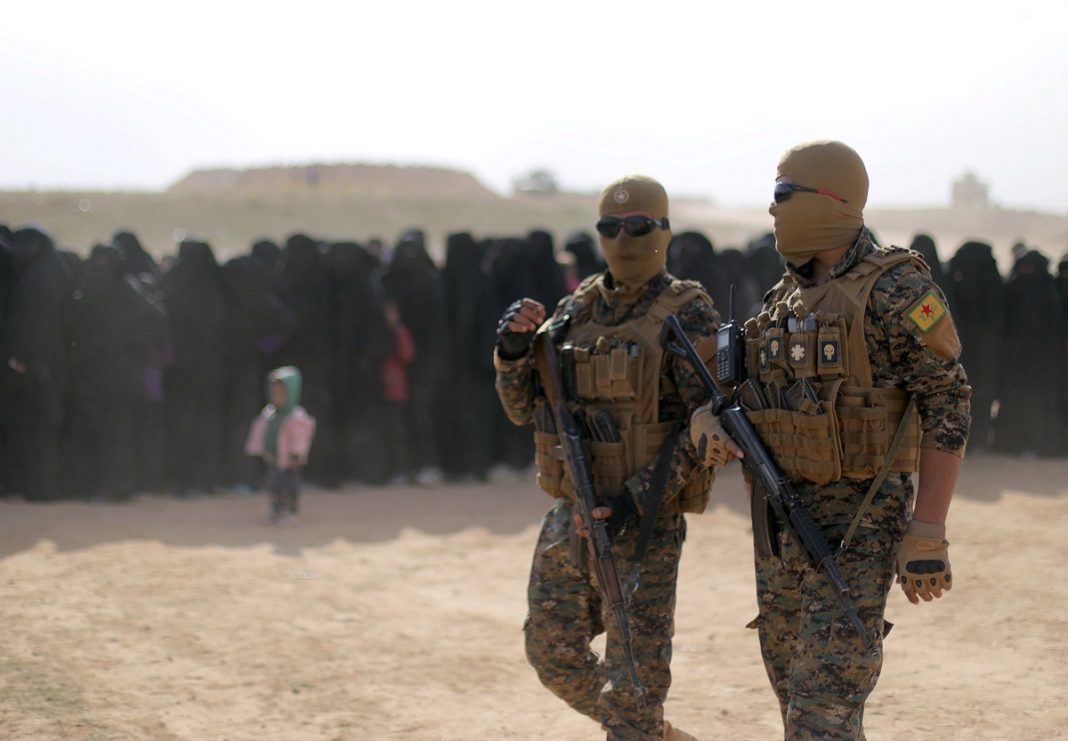The official told Al Jazeera that Turkey has demanded that Moscow and Washington press the Syrian Democratic Forces (SDF) to withdraw within two weeks from Manbij, Tal Rifaat and Kobane (Ayn al-Arab).
Turkey will not extend that deadline, according to the official, and has warned that the alternative will be a military operation against the US-backed SDF, which is largely made up of the Kurdish-dominated People’s Protection Units (YPG).
Ankara considers the YPG to be the Syrian branch of the Kurdistan Workers’ Party, a designated “terrorist” group in Turkey, the US, and the European Union. It has threatened a new ground operation against the groups in northern Syria since June, and has stepped up preparations since a bombing in Istanbul blamed on the PKK killed six people in mid-November.
The PKK and the YPG have denied any involvement.
In response to Turkey’s demands, the Turkish official stated that the US had proposed the idea of restructuring the SDF and giving a larger role to the Arab forces within it in administering the three towns that Turkey had demanded the SDF withdraw from.
However, Turkey announced that SDF control of oil facilities had to end before it considered any American proposals.
The Russian side also placed its own demands related to Ukraine and linked those demands to it backing down on Syria.
The SDF has attempted to head off Turkey’s planned operation by leaning on both the Russians and the Americans.
The group, which is the main local force the US relies on in the fight against Daesh, had said on Friday that it would no longer participate in joint anti-Daesh patrols with the US as a result of Turkish shelling and bombardment from across the border.
However, in an interview with the Saudi-owned Asharq Al-Awsat newspaper published on Wednesday, the head of the SDF, Mazloum Abdi, confirmed that those joint patrols with the Americans had resumed.
But Abdi countered the Turkish demand that the SDF withdraw from a 30-kilometre (18.6 miles) zone along the border in favour of government forces by saying that the latter were already present in the area.
Abdi also added that he wanted the SDF, which emerged during the early years of the Syrian uprising against the government, but has grown closer to the Syrian government, to be fully integrated into the Syrian army.
“The SDF is generally part of the Syrian army’s defensive structure,” Abdi continued, before stating that the group’s fighters needed to be given formal roles within the army, and that negotiations with Damascus were continuing over the matter.
The SDF has long warned that fighting off a new Turkish incursion would divert resources from protecting a prison holding Daesh fighters or fighting Daesh sleeper cells still waging hit-and-run attacks in Syria.
The US has announced it understands NATO ally Turkey’s concerns in Syria, but has opposed a ground invasion and said Turkish raids had directly threatened the safety of US personnel.
The US-led coalition has backed the SDF with air attacks, military equipment and advisers since 2017, first helping it wrest back territory from Daesh and then supporting clearing operations against sleeper cells.
